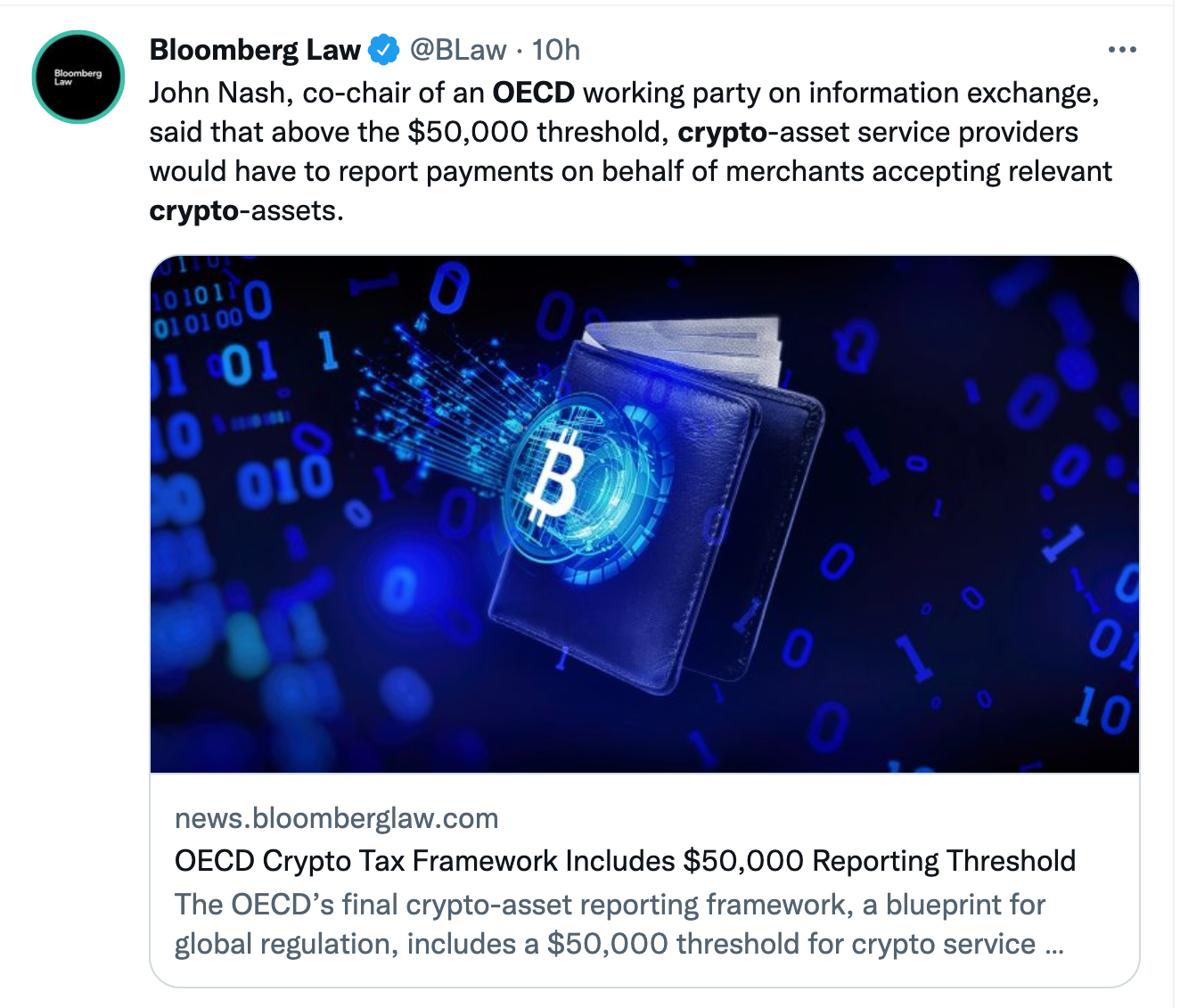On Monday, the Organization for Economic Co-operation and Development ( OECD ) proposed a framework for increasing transparency in global cryptocurrencies at the G20.
Twenty participating countries comprise the G20, including China, India, South Korea, Brazil, the United States, the United Kingdom and the European Union. In the year In April 2021, the G20 tasked the OECD with developing a mechanism for the automatic processing of cryptocurrency tax returns between countries .
G20 finance ministers and central bank governors will propose changes to the 100-page Crypto Asset Reporting Framework (CARF) and the group's Common Reporting Standard (CRS) at their meeting in Washington on Wednesday and Thursday.
The OECD first endorsed CARF in August, in a report the group called a " transparency initiative " for cryptocurrencies. Among other things, it defines what cryptocurrencies and NFTs are , provides an automatic reporting program for international cryptocurrencies, and contains provisions for trading cryptocurrency derivatives.
According to the statement, the OECD stated that cryptocurrencies are not currently covered by the CRS, which is designed to prevent international tax evasion .
The OECD says that since cryptocurrencies are not covered by current standards , there is a possibility that they could be used to avoid taxes , " undermining the progress made on tax transparency adopted by the CRS ".
The OECD proposed changes to the CRS include the addition and definition of Central Bank Digital Currencies ( CBCCs ).
The White House has released a "comprehensive framework" for the regulation and development of cryptocurrencies.
While the picture affects many countries, the US may be different. In a blog post, Coinbase said it believes the CARF and CRS will apply to all countries except the United States, as the United States creates its own cryptocurrency tax rules under the Infrastructure Investment and Jobs Act.
All in all, the proposed framework and revised standards may signal the end of the crypto wild west and the beginning of the article of international regulations.
World leaders recognize that cryptocurrencies are a trillion-dollar industry and that some illegal traders can exploit licensed and sometimes anonymous cryptocurrencies through sanctions , taxes or other illegal activities.
These and more OECD and G20 measures may make life a little difficult for cryptocurrency tycoons like Terra Do Kwon , who is now on the Interpol red alert list, or Michael Saylor , who is currently being prosecuted by the US attorney . Total fraud
Editor's Note: This article has been updated to include comments from Coinbase.

